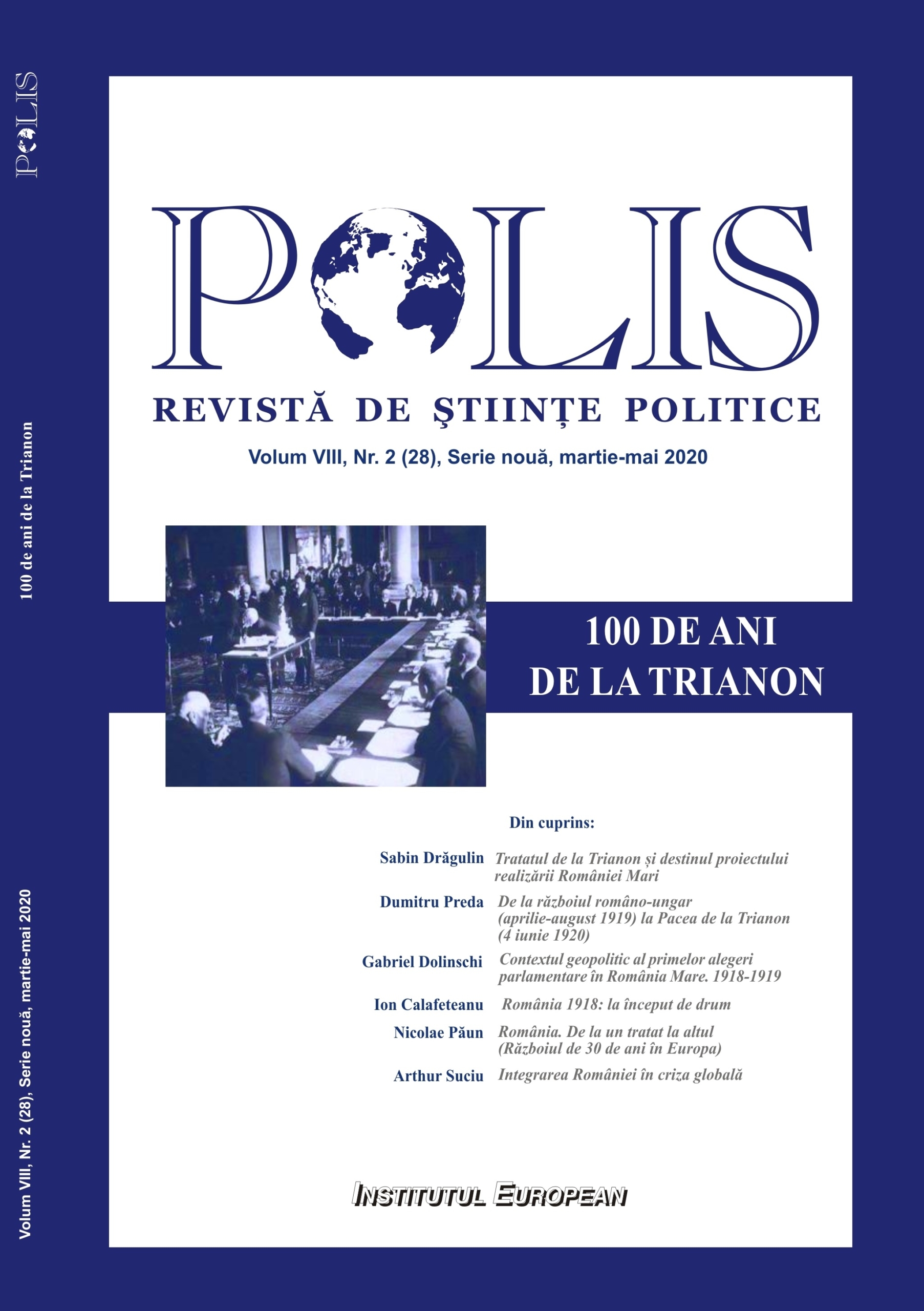Integrarea României în criza globală
The Integration of Romania into the global crisis
Author(s): Arthur SuciuSubject(s): Politics / Political Sciences, Politics
Published by: Editura Institutul European
Keywords: neoliberalism; economic crisis; nationalism; communism;
Summary/Abstract: The article presents a critical evaluation of the main discursive directions in Romania, after the accession to the European Union (EU) and the outbreak of the world economic crisis in 2008. We considered the hermeneutic analysis of the political discourse. The neoliberal direction was dominant, including during periods when left-wing or euro-skeptic parties were in power. Basically, we can talk about an explicit anti-neoliberal direction just in the case of the 2013 protests against the gold mining in Roșia Montană. The austerity measures, adopted in particular in 2009 and 2010, have virtually replaced the post-accession program. During the same period, Romania experienced the largest migration to EU countries. The accession was, therefore, seen by a significant number of Romanians as an opportunity to leave the country, often forever. At the end of this period, Romania was struggling between the dominant neoliberalism, already in crisis globally, and some forms of nationalism. It had become a peripheral country of the Western world, experiencing the global crisis in terms specific to the periphery. Finally, we made two critical assessments: of the “communist” option, about which Slavoj Žižek wrote in his work Like a Thief in Broad Daylight: Power in the Era of Post-Human Capitalism , and the conservative anti-neoliberal one, presented by Alexandru Racu in the Antisocial Apostolate. Theology and neoliberalism in post-communist Romania.
Journal: Polis. Journal of Political Science
- Issue Year: VIII/2020
- Issue No: 2 (28)
- Page Range: 135-158
- Page Count: 24
- Language: Romanian

